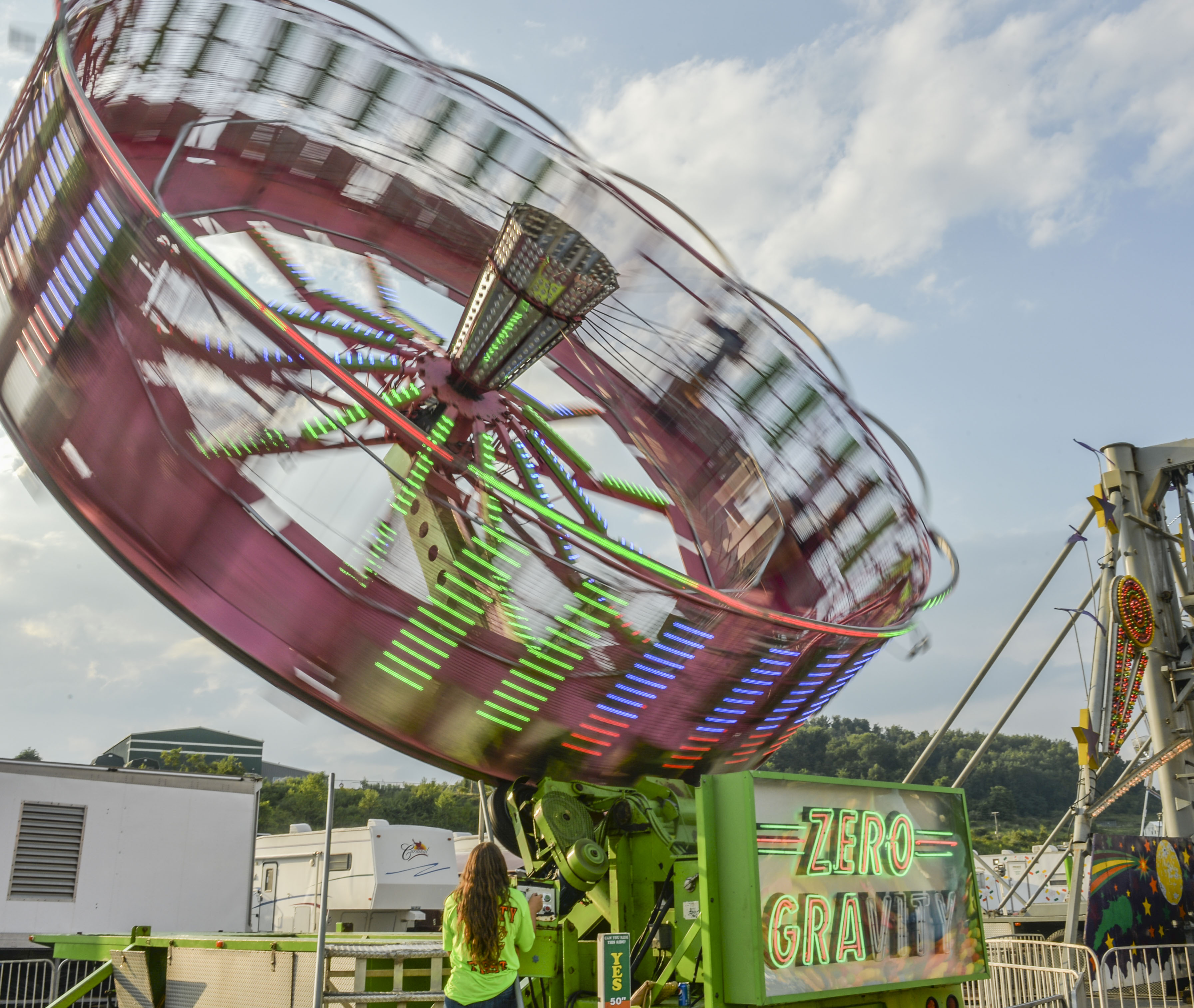MORGANTOWN — The Monongalia County Fair Board of Directors will decide Monday whether or not to hold a fair this year.
Fairs and festivals are a longstanding tradition in the Mountain State but, like everything else in COVID-19 America, they are being forced to change or, in some instances, go away.
On Thursday, Gov. Jim Justice said guidelines will be announced on how fairs and festivals can proceed. For some, the news comes too late. The Barbour County
Fair, for example, has already cancelled.
Rob Maxwell, chairman of the Monongalia County Fair board, said Friday a decision will be made Monday evening.
Board members will consider the state’s guidelines, he said.
“If there’s restrictions on attendance, that’s mainly it,” Maxwell said. “I don’t want to be the one to say, ‘OK, this car can come in and now the next car can’t.’ I don’t want to be restricting people coming to the fair.”
Another big consideration, Maxwell said, is “the lack of sponsorship because all the local businesses have been hit so hard with all of this. The sponsorship for the fair is of course way, way, way down.”
Other events, such as the Mountain State Forest Festival and Preston County Buckwheat Festival, have made some changes but not announced if they will go on this fall.
The Buckwheat Festival Royalty Pageant, for example, normally a public event, was done without an audience at the Kingwood Community Building and the winners announced outside at its conclusion.
Kelly Collins is CEO of The State Fair of West Virginia and president of the West Virginia Fairs and Festivals Association. The State Fair hasn’t decided whether to proceed.
She said fairs and festivals impact communities in many ways.
“I know here at the State Fair of West Virginia, we have a $13.8 million impact on the state. That’s just our fair. So if you look at all the festivals, all the county fairs and all the festivals across the state, it’s well into the millions of dollars.”
That figure was based on a 2011 study, and Collins said it’s likely more now. “It’s a huge economic impact,” Collins said, estimating there are 300-500 events statewide.
The economic impact includes not just the organizations that sponsor the events, but hotels, gas stations, restaurant sales, fundraising by civic organizations and others. Sometimes visitors decide to return for vacations, based on their experiences at the festival or fair.
It takes money to put on an event, too, Collins, said, echoing Maxwell’s concerns.
But it goes beyond the dollar.
“It’s also important to think about the social impact as well,” she said. “The people who run these events love their festivals. Most of them aren’t paid, so they’re doing it because they love their community and what they’re doing at their event.”
Everyone is trying to make an informed decision about summer and fall events, Collins said. But it has to be decided months in advance because there are contracts to consider.
She quoted the general manager of the Minnesota State Fair, one of the largest in the nation: “Unfortunately we have to plan for what we have today not what we hope it will be when we have our events.”
The State Fair board will decide within the next two weeks whether to hold its event, Collins said. Part of that is because of the non-monetary impact.
“We live in a time right now where there is a lot of unrest, and our job is to bring people together and to make them smile and have good memories of their friends and family,” she said.
TWEET@DominionPostWV




